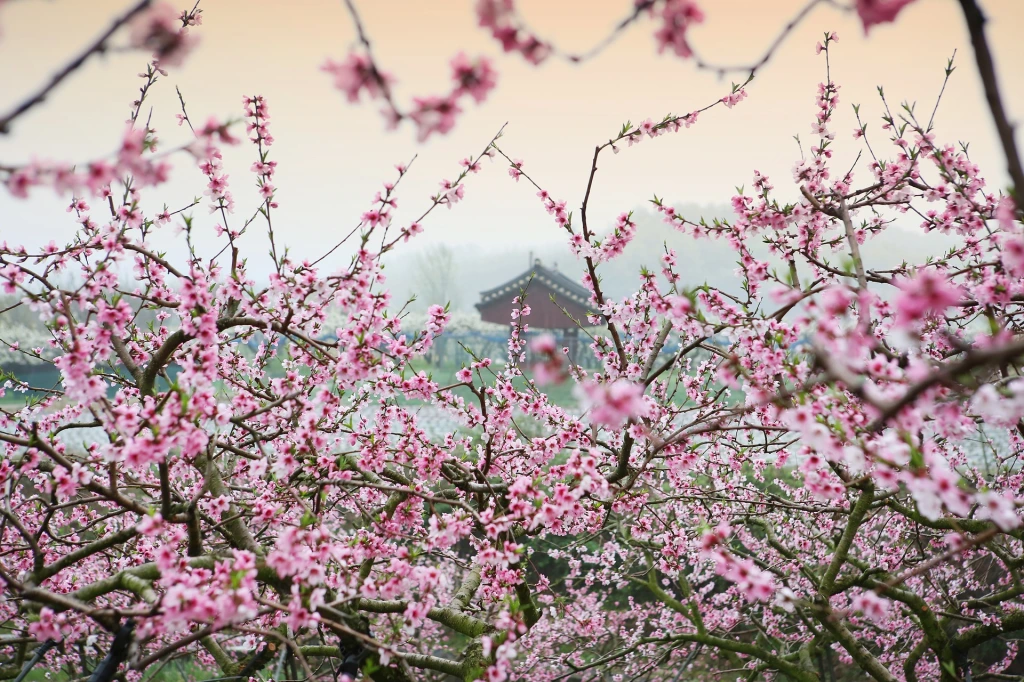I’m on board, about to sail,
Suddenly, I hear singing on the shore.
Peach Blossom Pool may be a thousand fathoms deep,
Yet not as deep as Wang Lun’s feelings for me.
As I, Li Bai, was about to leave by boat
Alas, I heard singing on the shore
Peach Blossom Lake may be a thousand feet deep
It’s not so deep Wang Lun, as the love you gave to me
Parting is Sweet Sorrow
On this occasion, parting was a time of singing and dancing as the residents of Taohuatan wished Li Bai a grand send-off.
During the reign of Tang Emperor Xuanzong (712-756), Wang Lun, the local magistrate of Jingxian County, Anhui Province, long been an admirer of Li Bai’s poetry, heard that Li Bai was traveling about southern China. Excited, Wang Lun wrote, asking “Are you fond of beautiful scenery, because we have ten miles of peach blossoms? And are you fond of drinking, because we have ten thousand taverns?”
此地有十里桃花;先生好酒乎?这里有万家酒店?
Li Bai took the bait and showed up in Jingxian. Then, Wang Lun confessed the truth – “Ten miles of peach blossoms” referred to the ferry called “Ferry of Peach Blossom” (十里桃花者,桃花渡也), and “ten thousand taverns” was only one pub whose owner’s first name was “Wan”. Figuratively true since, the Chinese family name, “wan” has the same pronunciation as “ten thousand” (万 Wàn).
The good natured Li Bai had a good time, and wrote this lovely poem as he was about to leave. He also managed to get a dig in at Wang Lun with a play on words, 水深, shuǐshēn, figuratively means “shoddy dealings”. Furthermore, 我 wǒ, the me in the last line is subtly suggestive. Folk etymology considers it to be an ideograph of a hand (手) holding a weapon (戈), in other words, one should protect oneself from such friendships.
Post Note
Sensing a business opportunity, the city named the ferry the Ancient Ferry for Farewell Song and Dance (踏歌古岸), and later a pavilion by the ferry. Taohua (Peach Blossom) Pool is now a cultural and historically scenic site.
Pinyin and Chinese
lǐ bái chéng zhōu jiāng yù xíng,
hū wén ànshàng tà gēshēng.
Táohuā tán shuǐshēn qiān chǐ,
bùjí wāng lún sòng wǒ qíng.
李白乘舟将欲行
忽闻岸上踏歌声
桃花潭水深千尺
不及汪伦送我情









